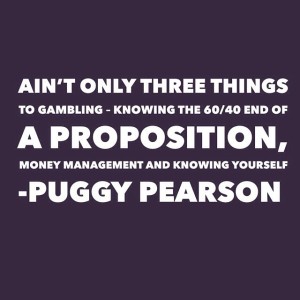When deciding what market to enter, traders have many choices. One of the key attractions of online Forex trading is its unique flexibility, with a lot of emphasis on providing facilities aimed at helping novices learn Forex trading with reduced risk. A Forex ‘mini account’ is designed for exactly this reason – to provide an easy entrance into the world of real time, live currency trading at reduced risk.
What is the difference between a Forex demo account and a mini account?
Traditionally, foreign exchange trading was a rather exclusive clique, with outsiders expected only to enter the fray if they were experienced and equipped with a wealth of knowledge and honed skills to “hit the ground running”. However, this is no longer the case and many Forex brokers and online forums are designed and dedicated to helping new traders find their way.
One of the key aids is the provision of a Forex demo account, allowing an inexperienced dealer to experiment with the market and develop a trading strategy, without risking any real cash.
Once ready to have a go for real, a good Forex broker will provide the facility to open a mini account (a small account with a very low initial deposit, usually around $100), allowing new traders to deal whilst keeping their investment and potentially their losses, limited to very small amounts.
This provides an ideal entry point and allows the trader an opportunity to experience the thrill and excitement of live trading without worrying about losing large sums of money on a bad trade. The Forex mini account allows you to build confidence and experiment freely before moving on to a larger account and more serious trading.
Why not just use a Forex demo account?
A Forex demo account is a great way to get your feet wet and learn the rudiments of trading, but at the end of the day there is really no substitute for the experience of live trading.
Demo accounts often lend themselves to high risk trades and very aggressive trading strategies, especially with new traders, due to the fact that there is absolutely no risk – you’re not using any real money.
In reality however such trading activity is unlikely to be mirrored when it’s your real money at stake! Trading psychology becomes a very real aspect of trading in the currency markets, and the ability to execute trades confidently and also to hold back when it’s your own money on the line is a key component of long term success.
These skills can be difficult to develop in the risk free environment of a demo account.
How much can I trade with a Forex Mini Account?
Forex Mini accounts, like those offered by Plus500 and other major online brokers, are technically defined as those allowing a trader to deal in lots of 10,000 of the base currency rather than the standard deal of 100,000. Even smaller than the Forex mini account is the micro account where nervous or financially challenged traders can enter deals for lots of just 1000 units.
Whilst any profits made are most likely to be modest in comparison to larger trades, there are a number of benefits to opening one of these smaller accounts. To start with, a mini or micro account is the first logical step for traders wanting to make the upgrade from virtual dealing to exchanges in the real world. Dealing with much smaller amounts of currency allows a trader to feel his way dealing with real money, often a nerve-wracking prospect to start with. Such small trades make losses less consequential and ensure a trader will not get wiped out straight away, one of the
biggest risks for novices.
The main benefit is in building experience and confidence, and overcoming the “fear of the unknown” that stops many traders from taking the crucial step into live trading.Why not go straight to a standard account?
Some traders, especially those who have spent extensive amounts of time on simulation accounts, may be tempted to jump straight into a standard
Forex account but experience has shown this is not always the right approach, regardless of how much virtual experience the trader has gained. One of the most talked about elements of Forex is the psychology of the trade, with the human aspect and tendency to ‘chase losses’ a very difficult urge to ignore.
Studies have shown that on switching from a dummy account to a real account, there is a psychological impact and it can take a while for traders to learn to control their impulses and adrenaline surges that come with both a big win or a big loss.
However, regardless of what type of account operated, it is vital to keep up to date with Forex news and the various updates circulating the market as well as expert tips – as all of these will help a less experienced trader determine the way in which the market is likely to move.